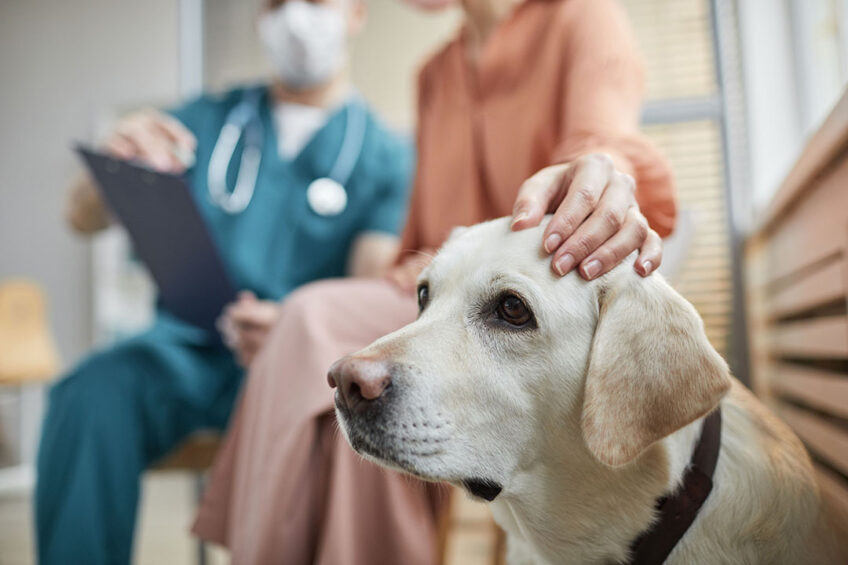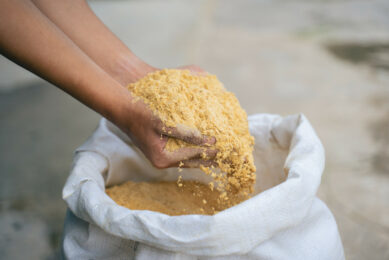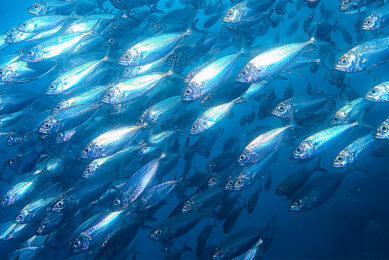Application of probiotics in pet food to relieve stress

It is essential to find ways to properly manage and relieve stress in pets. This article will address inclusion of probiotics in pet food to alleviate stress response.
Environmental factors including extreme temperature, interruption of daily routines, vet visits, and novel environments can cause chronic stress and anxiety in dogs and cats. Abrupt environmental accidents such as sudden noise and falling objects usually result in panic and fear in pets. If space allowance for activity and behavioural needs and proper environmental enrichment are not provided, cats and dogs may not be able to fully perform natural behaviours which result in anxiety and depression.
Furthermore, inappropriate or aversive interactions between pets and humans including the use of punishment, social deprivation, restraint, and forced interaction result in additional stress in pets.
Impact of stress in pets
The changes influencing the daily routine of pets lead to chronic stress and possibly gut ulcers which manifest as mucosal erosion, bleeding, and even perforation. In addition, secretion of catecholamines and glucocorticoids during stress response decreases the blood flow to the gastrointestinal system causing mucosal ischemia and increase in gut permeability.
Chronic stress
Is related to sustained diarrhoea and gastrointestinal diseases in pets, such as feline panleukopenia and inflammatory bowel disease in dogs.
Chronic stress leads to a permanent increase in cardiac sympathetic tension and hypertension, resulting from elevated blood cholesterol levels and sodium retention in vascular smooth muscle cells.
Acute stress
Increases the total number of white blood cells and primary immune response to cope with adverse changes. Increased glucocorticoids due to chronic stress exert a strong immunosuppressive effect by inhibiting cytokine production, macrophage function, lymphocyte proliferation and differentiation, and natural killer cell activity and increase the risk of pathogen invasion.
Stress causes:
- Urinary tract problems – increases frequency of urination, urination in inappropriate locations, reduces glomerular filtration rate and urine output, and affects urinary tract health through neuroendocrine pathways.
- Stressful stimuli provoke diverse ventricular arrhythmias including ventricular tachycardia and early extrasystoles in dogs.
Probiotics as nutritional regulators
Gut health is of great importance in regulating dog and cat behaviours via the gut-brain axis. Gut microbiota is involved in the regulation of stress/emotion factors such as serotonin synthesis, brain-derived neurotrophic factor, and cortisol, thereby playing an essential role in stress management.
As a result, improving the gut microbiota composition alleviates anxiety and stress. Incorporating direct-fed probiotics into pet food modulates gut and neural health, thus relives stress and related symptoms. For instance, saccharomyces boulardii reduces faecal calprotectin, IgA, and cortisol, alleviates gut inflammation, and decreases stress hormone secretion.
In addition, probiotics offer unique benefits for dogs with sensitive stomachs, food sensitivities, senior dogs with medical conditions such as cancer, dogs that have recently been ill, and dogs that have recently received antibiotics.
Probiotics inclusion methods in pet food
Most pet food go through thermal processing to reduce or destroy microbial activity, to extend shelf-life, and to diminish the risk of pathogenic microorganisms and their toxins in the finished product. However, thermal processing is a stressor which can be counterproductive to the inclusion of probiotics into pet food. Heat damages the outer cellular membrane and peptidoglycan wall, reduces cytoplasmic membrane integrity, and denatures cellular organelles, RNA, DNA, and enzymes.
Various methods are used in commercial pet food production.
- Extrusion cooking is a high-temperature, short-time, high-shear process which creates nutrient-dense, highly palatable, shelf-stable products.
- Extrusion cooking includes using thermal energy in form of steam injected at the pre-conditioning step and mechanical energy generated by shear forces from the rotating screws contacting the material to rise the temperature inside the barrel as a key step in the destruction of spoilage and pathogenic microorganisms.
- Retort cooking which involves the heating of low-acid, high-moisture products in hermetically sealed containers to a minimum of 121°C to remove all pathogens and spoilage microorganisms, rendering the final product commercially sterile.
- Baking meat-based formulations is another common manufacturing process in the pet food industry offering advantages such as the development of desirable colours and flavours that result from Maillard reaction product formation.
- Freeze-drying is a relatively gentle dehydration process for products with high bioavailability. This method includes no heat processing and the slow rate of water removal by applying a high vacuum to a sealed vessel to reduce the pressure. Freeze-drying preserves bacterial cultures, thus it is a proper method for the downstream incorporation of direct-fed probiotics into pet shelf-stable food. However, this method does not mitigate the risk of food-borne pathogens.
What to consider when selecting probiotic strains?
Physiological strain attributes, stabilisation method, processing conditions, application methods, and packaging and storage conditions need to be taken into account to choose appropriate probiotic strains for commercial pet food.
The probiotic physiological strain attributes include thermal resistance, oxygen tolerance, acid and bile resistance, stabilisation methods comprise sporulation, freeze-drying, and encapsulation, and processing conditions consist of time, temperature, pressure, moisture, water activity, and pH. In addition, probiotic viability should be confirmed when working with novel probiotic strains, and when any modifications are made to processing conditions, product formulations, or packaging designs.
Concluding remarks
Companion animals frequently face various stressors including exposure to transportation and novel environments, and inappropriate caretaking strategies. Probiotics are functional ingredients contributing to the advancement of companion animal health and welfare by alleviating the systemic changes associated with pet stress. Various manufacturing processes including extrusion cooking, retort cooking, freeze-drying, and baking are used to improve pet food safety and prolong shelf-life, however, some can be counterproductive to the survival of direct-fed microbials. Therefore, further research is required to evaluate the exact functions, side effects, and application guidelines of probiotic supplementation into pet food.
Source:
Review ‘Dietary Strategies for Relieving Stress in Pet Dogs and Cats’ – Zhicong Fan, Zhaowei Bian , Hongcan Huang, Tingting Liu, Ruiti Ren, Xiaomin Chen, Xiaohe Zhang, Yingjia Wang, Baichuan Deng and Lingna Zhang
‘A Review of Application Strategies and Efficacy of Probiotics in Pet Food’ – Heather Acuff and Charles G. Aldrich











